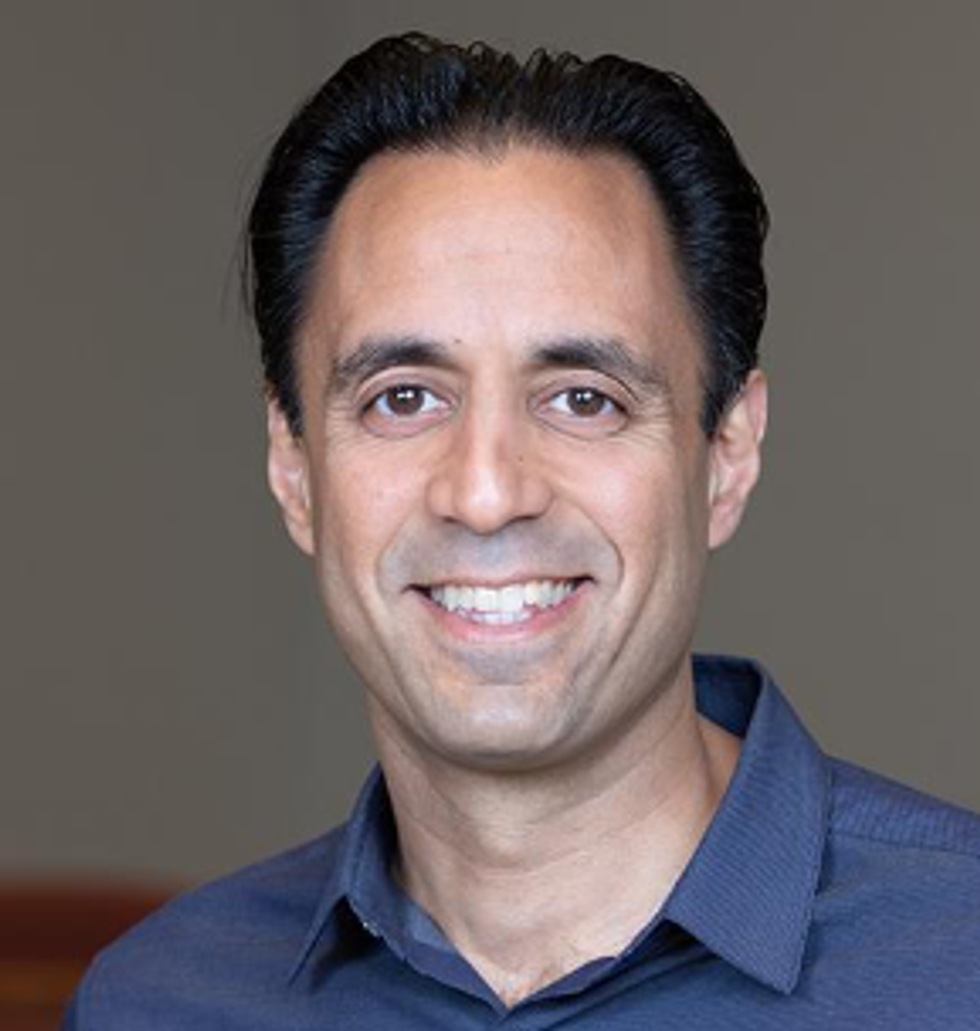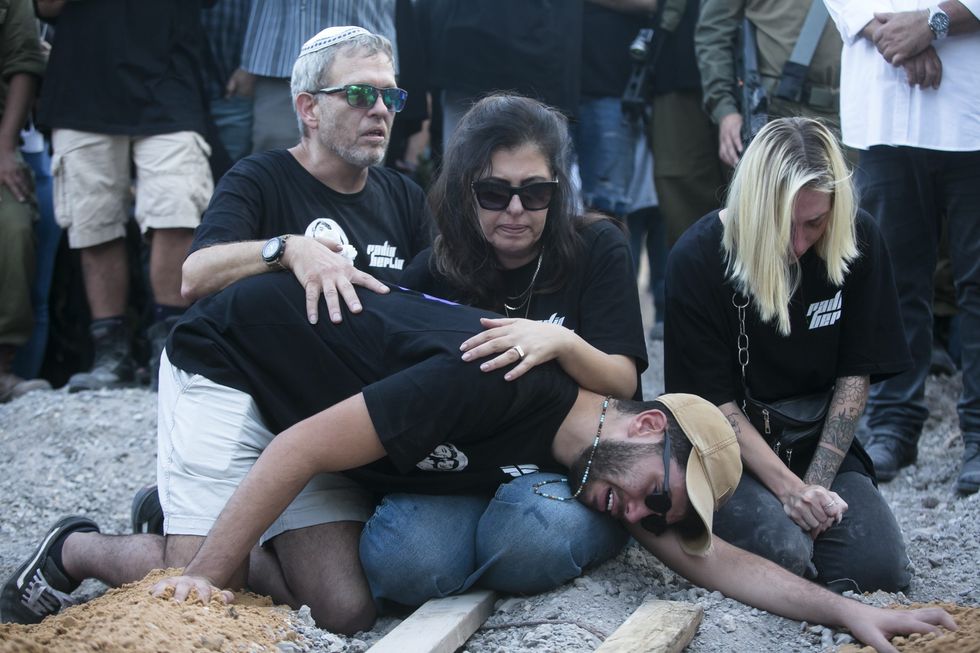(This article was initially published by Prof Malhotra as an independent article on LinkedIn. It is being published here with his permission)
Israelis. Palestinians. Jews. Muslims. Everyone is angry. Everyone is afraid. And everyone feels that their legitimate fears and grievances are being ignored – and that turning a blind eye to acts of injustice is not only immoral, but dangerous.
These sentiments are not new, but in the aftermath of the most horrific attack on Jews since the Holocaust, they have taken on an intensity and urgency that we have rarely, if ever, seen. That people would disagree and debate about all aspects of the Israeli-Palestinian conflict is not a surprise. Nor does anyone think that someone who has a very strong opinion on the conflict is suddenly going to change their mind.

What can be surprising, however, is when you feel that the people you most expected or needed to stand by your side on an issue that seems morally unambiguous, are suddenly hesitating to do so. For example, when a Jewish student asks classmates to denounce Hamas, and the conversation does not go at all as hoped or expected. This is much harder for people to accept. Not surprisingly, in both social media posts and emails, these words by Martin Luther King, Jr. are being constantly invoked this week:
In the end, we will remember not the words of our enemies, but the silence of our friends.I think it might be useful to understand one reason this happens, and what you might be able to do about it. This post, due to its timing and content, might seem most immediately relevant to my friends, students, and colleagues who are Jewish, for whom their disappointment with “allies” is verging on exasperation, and the pain of it is bleeding into outrage.
But this is, ultimately, a post about how all sides of this (or any) conflict, who feel that they are not being heard, understood, or supported, might be more effective. The tendency in such moments is to assume that your allies are cowards, or fence-sitting for political reasons, or just don’t care enough. Of course, all of these can be factors, but in my experience, it is usually something quite different that is most at play. Understanding what is going wrong in these conversations might help us become better at dialogue and building moral consensus.
So, let’s take the example of the most recent attack by Hamas. Why is it, that at a time when one might expect moral clarity and universal condemnation of the horrors that Hamas has perpetrated, people are instead stuck disagreeing, debating, and demonizing one another? Why is it that so many of our Jewish students, friends, and colleagues feel disappointed with how others in their social networks are responding – or refusing to respond – to the call for a clear statement condemning Hamas?

Let’s start with what seems easy enough, at least for me: I, for one, can unequivocally say that I condemn, without reservation, the inhumane, wicked, and unjustifiable acts of Hamas. They cannot be excused.
Why then, when my Jewish friends, colleagues, or students say this, do others in the room not immediately and unanimously echo the same sentiment? Why do others sometimes hesitate, or argue, or suggest that the answer is more complicated? The thing to understand is that even when you ask a question as seemingly straightforward as “Isn’t what Hamas did completely unjustifiable?” it has the power to trigger three very separate conversations – and when that happens, you will probably start talking past each other. What are these three conversations?
Conversation #1 is the one you were trying to have in that moment, which is about whether what Hamas did is inhumane and unjustifiable.
Conversation #2 is about whether the Israeli-Palestinian conflict is a complicated affair that requires a careful and honest acknowledgment of the role everyone, including Israel, has played in the past. You might agree that there is a place and time for such conversations, but it’s not the conversation you were trying to have in that moment.
Conversation #3 is about what the Israeli government should or should not do in response to the attacks. For example, isn't it essential that Israel respect international law and human rights when it retaliates? You might agree completely with this, but that is also not the conversation you were trying to have in that moment.
For the moment, you were just trying to have Conversation #1, and your hope was that at this time of maximal pain and fear, others would find it easy to agree that the targeted and barbaric murder of civilians by Hamas is categorically wrong and must be condemned. Yes, there are reasons to also have Conversation #2 or #3, but does it have to be at the precise moment when you’re simply asking someone to acknowledge that “killing babies is wrong” and to condemn such acts (whether perpetrated against Jews or anyone else)?
As someone who has devoted much of their life to Conversations #2 and #3 – which is to say, as someone who knows that only by understanding the roots of conflict (and honestly examining how each side has perpetrated injustice) is it possible to solve problems effectively and in accordance with our values – I understand the importance of these other discussions and debates.
However, I don’t think this means one cannot take a moment (or hopefully longer) to acknowledge Conversation #1 when someone brings it up. The point is not even that Conversation #1 must always be had before #2 or #3, just that it deserves some space and time.
I think most people are capable of, simultaneously, exhibiting moral clarity and having a nuanced understanding of a complex conflict. For example, I happen to believe that the attacks by Hamas are so inhumane that they cannot possibly be “justified”. I am equally sure that we should never shy away from “explaining” what happened and why – nor allow ourselves to be bullied into adopting a one-sided (e.g., only pro-Israeli) perspective on the history of this or any other conflict.

I happen to also believe that Israel has a right to defend itself and its citizens, but that does not mean I will excuse or condone retaliatory acts that ignore human rights and international law – which is something that might already be happening; nor will I be bullied into an absolutist “you are either with us or against us” modality.
Why then, even with people who would agree in principle that what Hamas did was terrible and unacceptable, do conversations get derailed? Because the two sides are coming into the conversation with different underlying concerns. I think what my Jewish friends, colleagues, and students want others to know is that they deeply believe – no, they are convinced – that now is the time to sit shiva as one global community and say that some things are simply never acceptable or excusable.
Meanwhile, I think that people who respond by shifting the discussion to Conversation to #2 or #3 (“well, we have to see the conflict in context”) are instead working to ensure that any acknowledgment of the evil perpetrated by Hamas does not minimize or forget the suffering that Palestinians (or other groups) have experienced; they also worry that their acknowledgment will be seen as tacit support for whatever Israel's government will do in retaliation—and many people are not ready to go that far.
But both sets of concerns can be met. It might be possible for both sides to get what they need from the dialogue – in fact, it will be easier for each side to get what it wants if it accommodates the genuine concerns and fears of the other.Here are a few suggestions that might make such conversations more effective — and less likely to lead to disappointment or outrage.
- It is important for everyone to be having the same conversation at the same time, no matter which conversation it happens to be. It does not help if you are trying to have Conversation #1 and others are having #2 or #3. It helps to clarify and coordinate on the scope of the discussion.
- If you are starting Conversation #1, it is more likely to go well if the other side knows (or if you have conveyed) that you are also open to the other two conversations; this makes it less likely that others feel it’s their job to continually interrupt and advocate or lobby for what you seem to be ignoring.
- It never helps when the other side feels like they are being judged—or being bullied into having a conversation on your terms—regardless of which position you are taking. Even when bullying seems to work, at best you can achieve temporary compliance, not true commitment.
- We need to be mindful of what exactly we appear to be asking of others. For example, asking someone to agree that "Hamas is perpetrating evil" is not quite the same as asking them to agree that "Hamas is evil and you should support the Israeli government's response," or that "If you don't support Israel, you are on the side of the terrorists". Most people I know who are saddened or offended by the lack of support they are experiencing simply wanted their friends, colleagues, professors, employers and/or universities to agree with the first of these statements: that is, to offer a clear condemnation of Hamas. Unfortunately, the way this request or demand is conveyed can sometimes make the other side feel that they are being asked to sign on to far more than just a condemnation of Hamas. And this can lead to reactance or resistance or hesitation. In general, the more demands you are making, the less likely you will get the one thing you most wanted.
Some might bristle at these suggestions. A Jewish person might ask: why should I have to navigate conversations so carefully? It should not be so hard for people to say that the killing of babies is evil. A Palestinian might bristle at this for an entirely different reason: Where was this discussion, and where were these suggestions, when Palestinians are being killed? Both are fair complaints. And there are probably many other fair complaints.
But the purpose of this post is simply to point out that whether you’re incensed by what Hamas has done in Israel, or by what Israel has done in the West Bank or Gaza, if you want to have more productive conversations about it—with potential allies or even with people who generally disagree with you but might be receptive to aspects of your perspective—this might be a more effective approach.
So, where should these conversations start? It probably depends on who is in the room and what you are trying to accomplish. Especially in the aftermath of a tragedy such as this, starting with Conversation #1 makes a lot of sense. We should be able to take a moment to agree that what Hamas did should not be allowed to happen again—not to our Jewish brothers and sisters, not to our Palestinian brothers and sisters, and not to any group of people.
We should be able to clearly state that such acts can never be condoned. At the same time, with Israel’s response in Gaza already raising concerns regarding violations of international law, Conversation #3 can also not wait. We need to ensure that in this moment of maximal anger, pain, and fear, the Israeli government does not feel licensed to take actions that will make matters worse or run afoul of its own stated moral standards—because if history is any guide, it is often the case that vengeance leads to ineffective and short-sighted policymaking and to the perpetration of regrettable human rights violations. And, of course, a case could also be made for prioritizing Conversation #2 (i.e., discussing the roots of the conflict and seeing current events in context).
Which is to say, we should be able to have Conversation #1—and that doing so does not have to mean Conversation #2 or #3 is any less essential or urgent. Indeed, all of these are crucial if we are to do what is necessary to create a better world for future generations of Jewish Israelis, Arab Israelis, and Palestinians alike. We cannot give up on that goal.
We must all try, yet again, despite so many past failures and disappointments, to build a future that will provide peace and justice for all of humanity, not just for any one group. For that to happen, effective dialogue will be essential, and we can all do better in that domain.
(Deepak Malhotra is a professor at Harvard Business School)




"Why won't you condemn Hamas?" Why your allies are silent and what to do about it